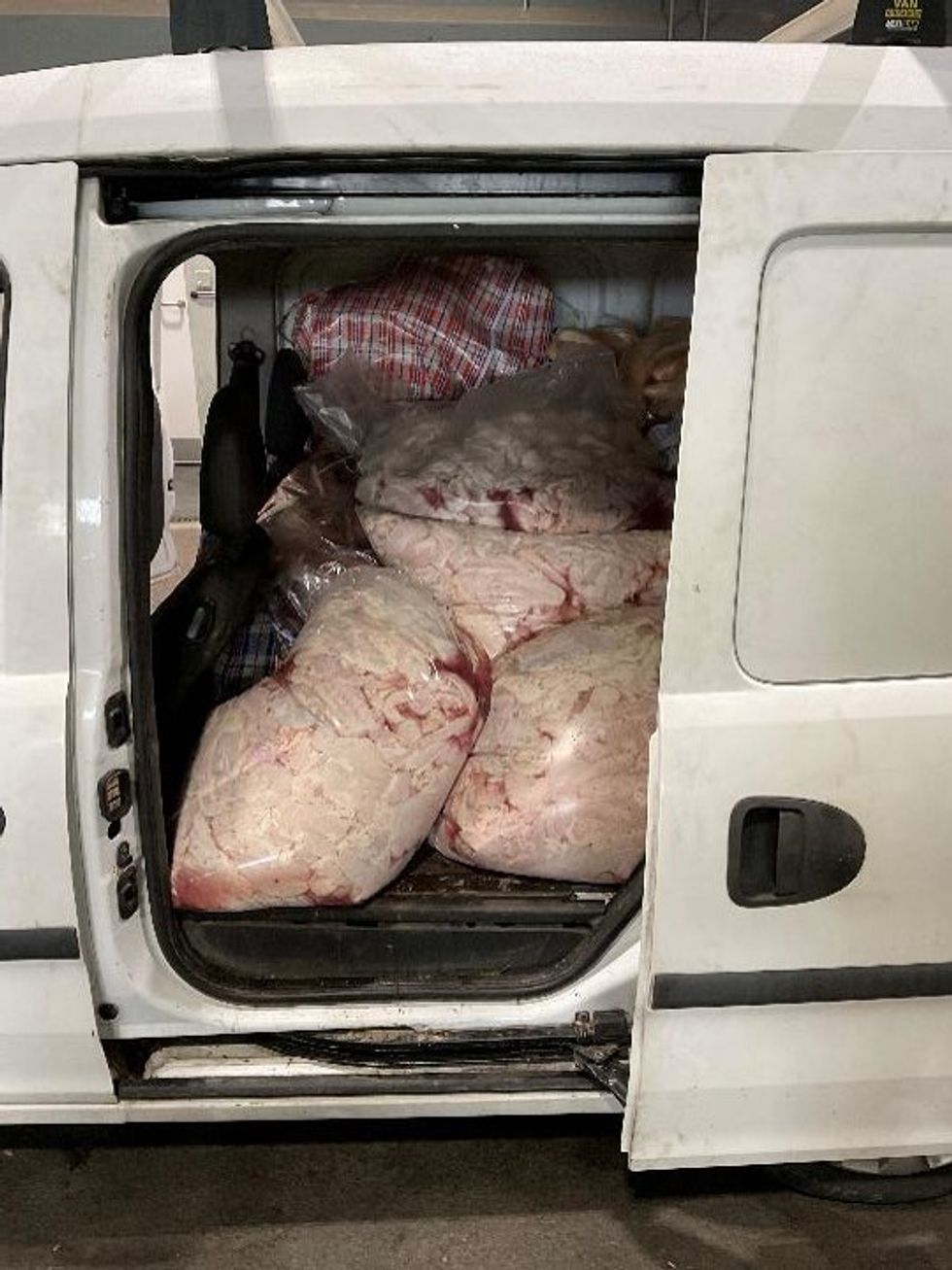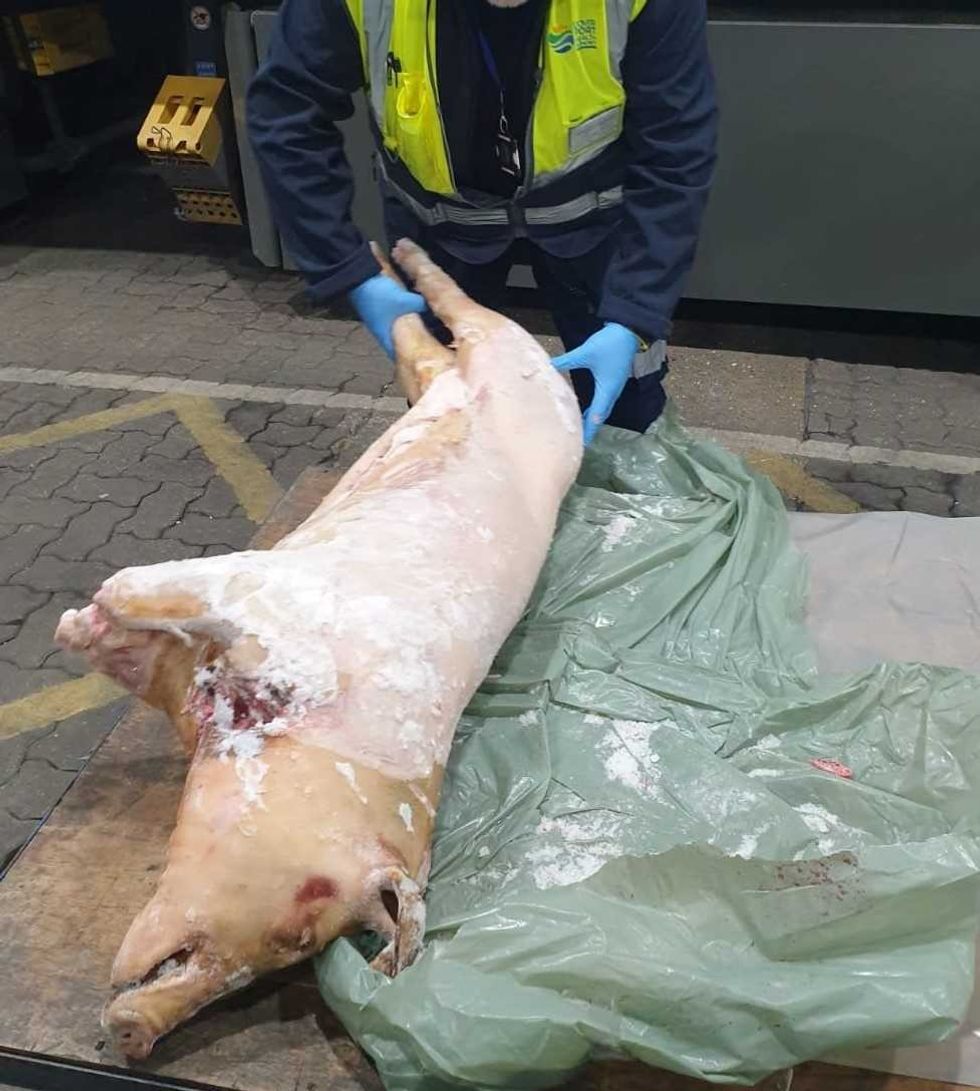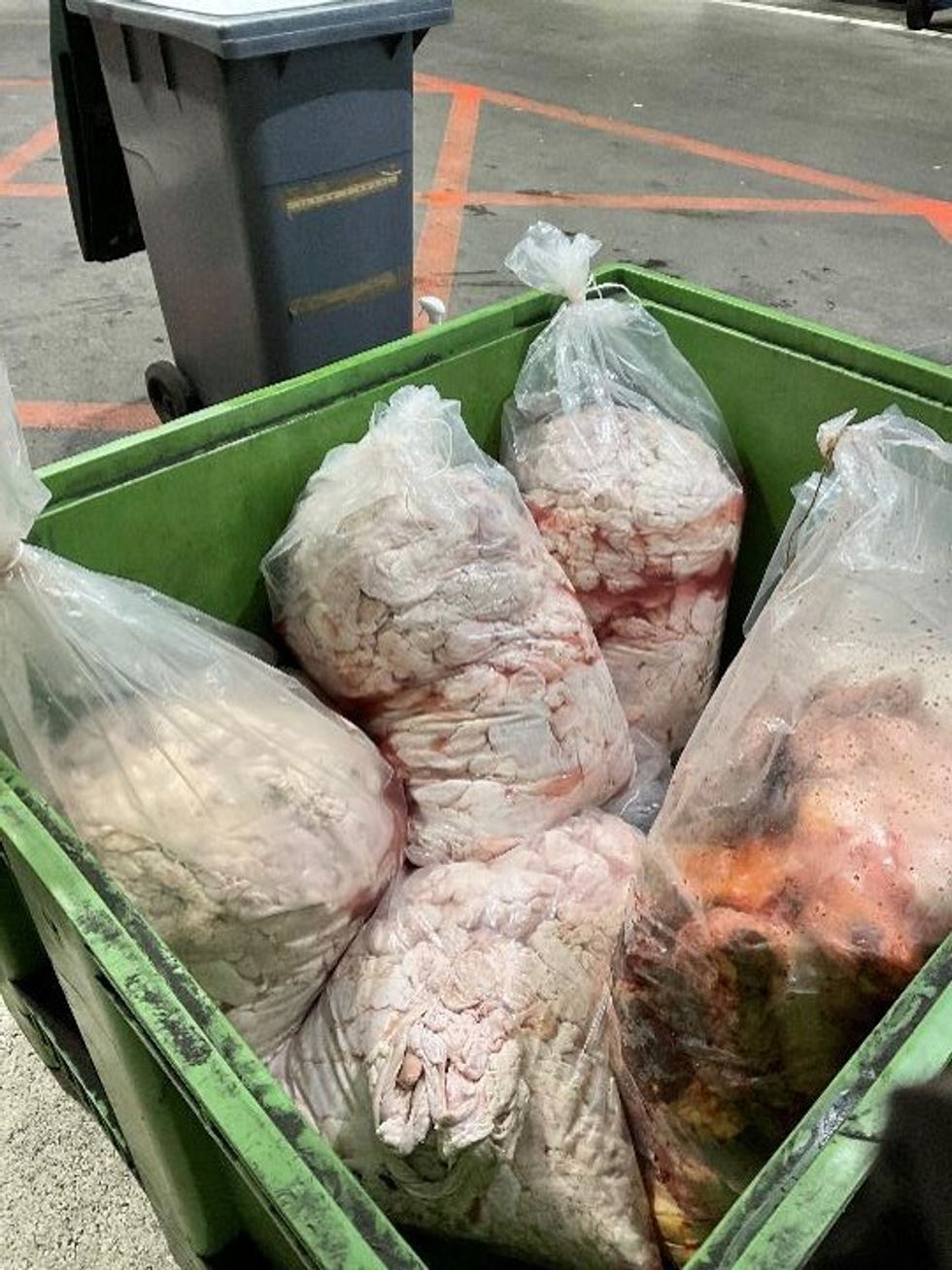‘The UK Government is putting our entire farming industry at risk,’ Dover Port head tells GB News
- WARNING GRAPHIC CONTENT WARNING
Don't Miss
Most Read
Trending on GB News
Dover health officials have conducted at least 584 individual seizures of illegal meat at the British port since September 2022 amid reports that the Government intends to cut funding for border checks, GB News can disclose.
Figures obtained by GB News reveal that at least 546 of those seizures involved meat which came from areas affected by African Swine Fever, a virus that can kill pigs just one week from infection.
It is estimated that 90 per cent of illegal meat imports to Britain arrive via Dover.
However, there have been zero arrests linked to the imports of illegal meat, GB News can also reveal, with some seizures including pig carcasses and flesh kept in non-refrigerated lorries.

Illegal meat seizure made by Dover health authorities
GB News
Illegal meat that is identified is removed and destroyed, a Dover District Council source told GB News, adding that the health authority has no powers to make arrests but criminal proceedings are an option available to both the Dover Port Health Authority and Border Force.
On Friday evening and Saturday morning, a total of 743.70kg of illegal meat was removed from 6 vehicles, bringing the total weight of seizures since September 2022 to 66.5 tonnes.
New rules were introduced in September 2022 making it an offence to import pork products over 2kg into Britain unless they met EU commercial standards.
The seizures come as African Swine Fever (ASF) continues to spread across Africa, Asia and Europe. It has a fatality rate close to 100 per cent. Britain has never had an outbreak of ASF, but it remains a key biosecurity priority for Defra.
LATEST DEVELOPMENTS:
African Swine Fever is surging across Africa, Asia and Europe
GB News
The shocking figures follow revelations that Defra is proposing to cut funding for food import sanitary checks at Dover by 70 per cent, with the Port Health Authority's head telling GB News that this is putting the country's entire farming industry at risk.
The checks are understood to have been funded via money allocated to the Border Target Operating Model, a new form of border checks for imports of medium and high-risk products of EU origin that started operating at the end of January.
Pig industry representatives fear that budgets are set to be slashed once full border checks are put in place from April, raising fears of risks to Britain’s biosecurity.
Additional concern has been raised regarding plans to move spot checks from the port of Dover to a new location in Sevington, 22 miles further inland.
Last month, the Environment, Food and Rural Affairs committee chairman Sir Robert Goodwill wrote to Defra minister Steve Barclay about the committee’s “real and reasonable concerns” about the plans.
“The inland border facility at Sevington will require vehicles to travel 22 miles unsupervised across Kent, presenting potentially serious biosecurity risks, but also compromising compliance.
“We understand that drivers will be under no obligation to go to Sevington, if asked to do so.
“As such, we have real and reasonable concerns about the geographic dislocation of the inland border facility from the point of entry.”
Sir Robert added that the Dover Port Health Authority said the proposed funding cut would have a “catastrophic effect” on biosecurity.

Illegal meat confiscated at Dover
GB News
GB News understands that African Swine Fever safeguard checks will continue to be conducted with Border Force at Dover Port and that it has never been the Government’s intention that these would move to Border Control Posts, such as the Sevington facility.
Lucy Manzano, head of the Dover Port Health Authority, told GB News: “What we are seeing at the Dover border is really concerning and highlights why these checks are so critical for UK biosecurity.
“While food crime is going up, Defra has proposed to cut our budget for African Swine Fever checks by nearly 70 per cent and move commercial food checks 22 miles inland to Sevington – away from the frontline.”
She added: “This move would allow illegal meat to move freely away from the point-of-entry without restriction and will needlessly weaken our border controls, undermine UK biosecurity and threaten public health.
“In the case of African Swine Fever, the UK Government is putting our entire farming industry at risk.”
Katie Jarvis, senior policy advisor at the National Pig Association, warned that the seizures are just a fraction of what is entering the market: “This number of seizures clearly demonstrates an alarming situation which poses a threat to the health of the national pig herd.
“The DPHA and Border Force have done fantastic and difficult work in capturing illegal meat imports and exposing the extent of this illegal activity since the introduction of the ASF control measures in September 2022, but the volume of meat being confiscated is just a fraction of what is arriving at Dover, with significantly greater volumes entering the country undetected.”
Jarvis added: “The NPA is concerned by the Government’s announcement that it will be cutting funding to these services by as much as 70 per cent. The NPA believes that rather than cutting the budget, more funding should be made available to enable DPHA and Border Force to step up their hugely important work.”
She told GB News that the NPA understands that the majority of meat entering the country illegally is intended for commercial use, which Jarvis said “poses a considerable food safety threat given the condition of the meat on its arrival in Great Britain.”
“The meat itself is very often in a very dirty and unhygienic state, transported across Europe in vehicles with no refrigeration capacity.”
A Defra spokesperson said: “In 2022 we provided a temporary financial support package to local authorities and port health authorities. Part of this package enabled port health authorities to support Border Force with enforcing the temporary measures on pork products from the European Union designed to address the risks of African Swine Fever.
“We recognise the strategic importance of the port of Dover and are continuing to work with the port authority on future support options.”
GB News has approached the Home Office for comment.








